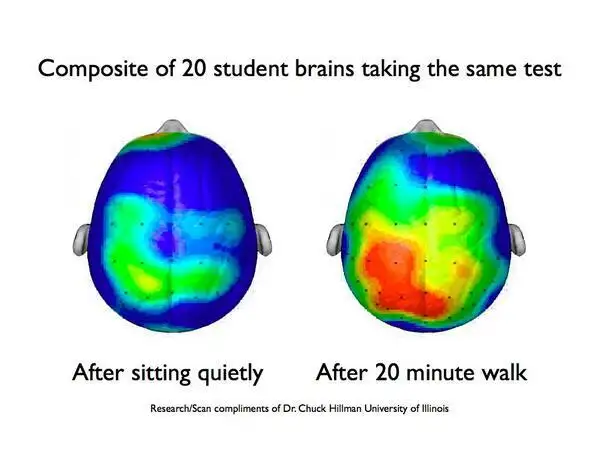10 GCSE Revision Tips to Take You from a 1 to a 9

NB: Looking for an online tutor? Search and arrange a free introduction with any of the thousands of qualified GCSE tutors on Sherpa.
1. Revision Timetable
A revision timetable can add structure to your revision and help you identify which GCSE subjects you need to prioritise to get better marks. Creating a revision timetable is a great way to organise your study time. Seeing the weeks ahead and the exams laid out in their correct dates also helps boost your motivation to revise.
And if you love studying as much as us, a timetable also means you have set aside time to relax too, which is just as important!
2. Take Regular Study Breaks
Taking regular study breaks and exercising is proven to engage your brain in studying and improve your exam performance in the long-run. We recommend taking short breaks, say 5 to 15 minutes every hour or so. Take a longer break, at least 30 minutes every 2 to 4 hours.

Charles Hillman, University of Illinois
3. Use Mind Maps To Bring Ideas Together
Finding it hard to remember all your new study notes? Mind Maps may be the key to improving your memory. The theory behind mind mapping explains that making associations by connecting ideas helps you to memorise information easier and quicker.
In every subject a Mind Map can be extremely helpful, a Chemistry topic can be linked by topic title and an English literature novel can be explained and analysed around a Mind Map.
4. Understand Your Learning Style
Everyone thinks that there is a best way to revise but the reality is that everyone is different. Once you understand whether you are a visual, auditory, reading/writing or kinaesthetic learner, then remembering and recalling new information will become much easier. Practice will also tell you if you work better studying during the night or in the morning/daytime.
If you don’t know what kind of learner you are, you can take an online test to work it out here.
5. Practice, Practice, Practice
For GCSE and A-level exams, one common theme to boost confidence and grades is completing past papers. Practising past papers will help you get familiar with the exam format, question style, time pressure and overall improve your ability to retrieve information quicker.
Common themes often come up in GCSE examinations with enough practice you will be able to spot this and prepare for themes that are more likely to come up. To find past papers on your chosen subject head to the exam board’s website.
AQA have a really useful and easy format to search through past papers.
6. Don’t Go It Alone
Don’t forget your classmates are going through the same process and worrying about the same things as you are. If you find your coursework to be too much, why not divide the course study notes between trustworthy classmates and share your notes with each other.
This will reduce the amount of workload you need to do to prepare for your GCSEs plus you will gain an insight into how other students learn.
7. Variety is the Spice of Life!
Your brain is extremely clever and with stimulation, you can remember much more than you think.
Change your study habits and methods by watching videos, listening to podcasts or documentaries, moving to a new study area. Sometimes something as simple as changing the colour of your pen.
With each subject colour coded, for example, Biology - green, Physics - blue, Chemistry - red. You will find you will be able to distinguish between them far more easily and recall information at a greater speed.
8. Stay Calm On The Day
Alongside awaiting the day of your GCSE results, the exam day can be the most stressful of the entire process. There are ways in which you can minimise your anxiety such as avoiding panicking friends, and giving yourself plenty of time to get to the test centre plus don’t underestimate the power of eating a healthy breakfast the day of your exams!
9. Different GCSE Subjects, Different Approach!
Each GCSE subject covers vastly different areas so your revision should be different in subject. GCSE revision should take account of the difference between your subjects and the challenges they represent.
For example, Flashcards are an ideal study aid to help you prepare for a Spanish, French or German exam such as GCSE Science where you need to remember key definitions. Practicing past papers is a great way to test your GCSE Maths skills while making Mind Maps and story paths would highly benefit your GCSE English.
10. Get an Online Tutor
It goes without saying that an online GCSE tutor can improve your grades. If there are a few that you are worried about or if you are behind where you expected to be, online tuition may be your answer.
Online lessons with a qualified teacher will help you in areas that you are unsure of and through the use of Sherpa’s interactive whiteboard, models and diagrams can be explained easily. Plus! All lessons are recorded for the convenience of revision so you can recap at any time.
Students
Looking for a tutor?
Sherpa has hundreds of qualified and experienced UK tutors who are ready to help you achieve your goals. Search through our tutors and arrange a free 20 minute introduction through our industry-leading online classroom.
Find a TutorSimilar Articles
Winding Down for the Summer School Holidays
Finished exams? Time to unwind, reflect and get valuable feedback from your teachers so you can set goals and prepare for the next step up after summer.

Jessica G
2nd December



